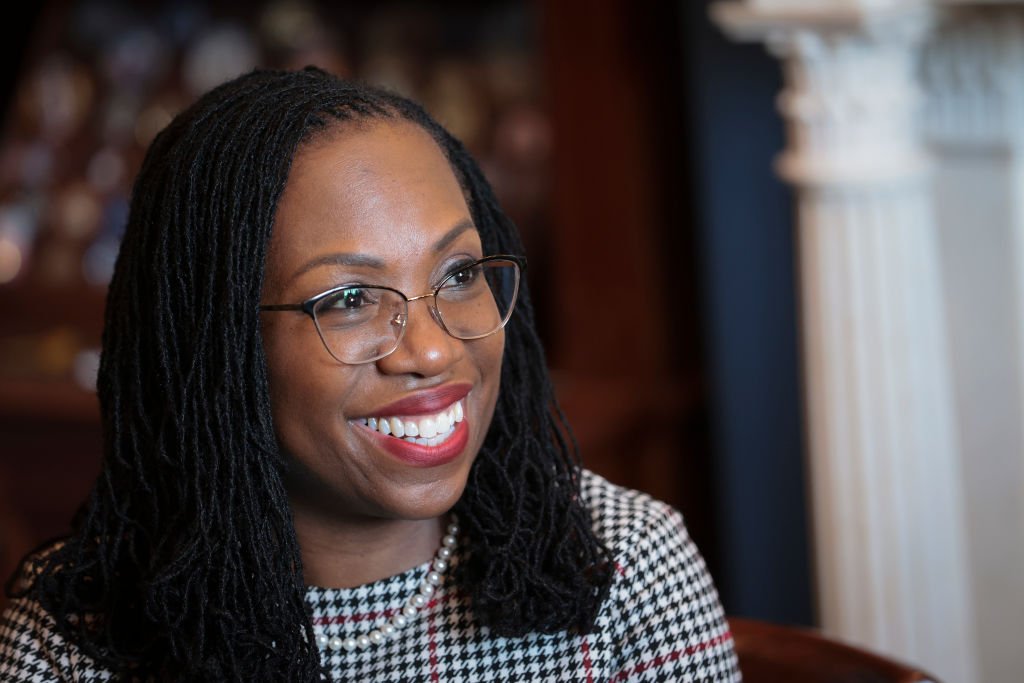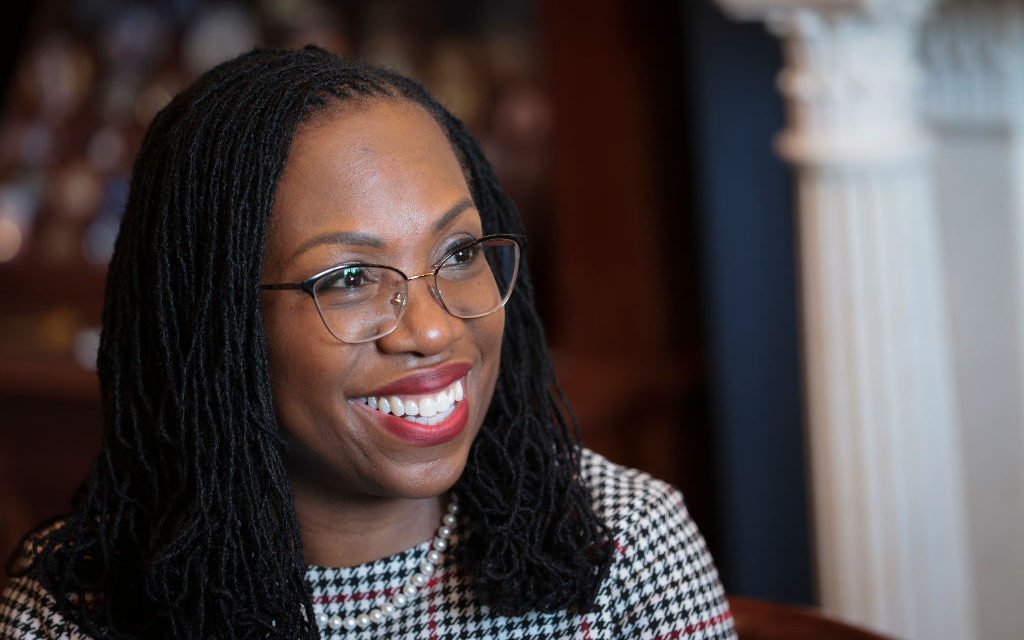
Earlier this month, history was made when Ketanji Brown Jackson was confirmed to the U.S. Supreme Court. The brutal interrogations she faced from elected officials and the racist vitriol she endured along the way to this milestone are shameful and disgusting. All but three Republican senators voted against her nomination, and several chose to walk out of the Senate chamber during the standing ovation following Vice President Harris’ announcement of the confirmation. And… the look of loving pride on the face of Leila Jackson captured in a shot from her mother’s confirmation hearings is here to affirm that hatred cannot triumph over the righteous joy of this long-awaited milestone.
The look of loving pride on the face of Leila Jackson captured in a shot from her mother’s confirmation hearings is here to affirm that hatred cannot triumph over the righteous joy of this long-awaited milestone. Share on XIf, as I assume readers can agree, you believe that representation of historically marginalized communities is critical, what underlies this belief for you? Why is having a Black woman represented at the highest level of our justice system so overdue? During a time when many vocal adversaries to Ketanji Brown Jackson’s nomination felt unashamed to voice their racist opposition to her appointment, it is critical that we reflect deeply on these questions and share our reflections with others in our communities.
I think often of Rep. Ayanna Pressley’s wisdom that “those closest to the pain should be closest to the power.” At The Winters Group, we similarly affirm the importance of centering those most impacted by unjust systems. To me, these philosophies in tandem are the foundational answer to the “why?” for authentic representation.
Justice Ruth Bader Ginsburg famously observed: “When I’m sometimes asked when will there be enough [women on the Supreme Court] and I say, ‘When there are nine,’ people are shocked. But there’d been nine men, and nobody’s ever raised a question about that.”
Ginsburg’s observation is powerful because it effectively illustrated many people’s bias toward men somehow representing a “neutral” or “norm” in such a way that we might realize we do not similarly extend to (white) women. Recent events underscore not only the ways that Black and Brown women are routinely relegated even further to the margins, but also that when they approach positions of power, they are inherently accused of having an “agenda” in ways white leaders never contend with.
I have thought of Justice Ginsburg’s quote many times in recent weeks as countless attacks on Ketanji Brown Jackson’s character highlighted that her very being as a Black woman in the context of an institution purportedly designed to uphold justice was perceived as a threat to those who implicitly or explicitly condone white supremacy.
The attacks on Ketanji Brown Jackson’s character highlighted that her very being as a Black woman in an institution purportedly designed to uphold justice was a threat to those who condone white supremacy. Share on XGinsburg herself didn’t always get it right; her own perspective as a white woman was inherently limited, as is my own. This is another reason I am celebrating Ketanji Brown Jackson’s confirmation to the Supreme Court.
The travails of this extraordinary confirmation hearing represent all the more why those closest to the pain should be closest to the power. This month, I celebrate a critical step toward that goal, and hope that we can collectively continue working toward realizing it in every space.



















